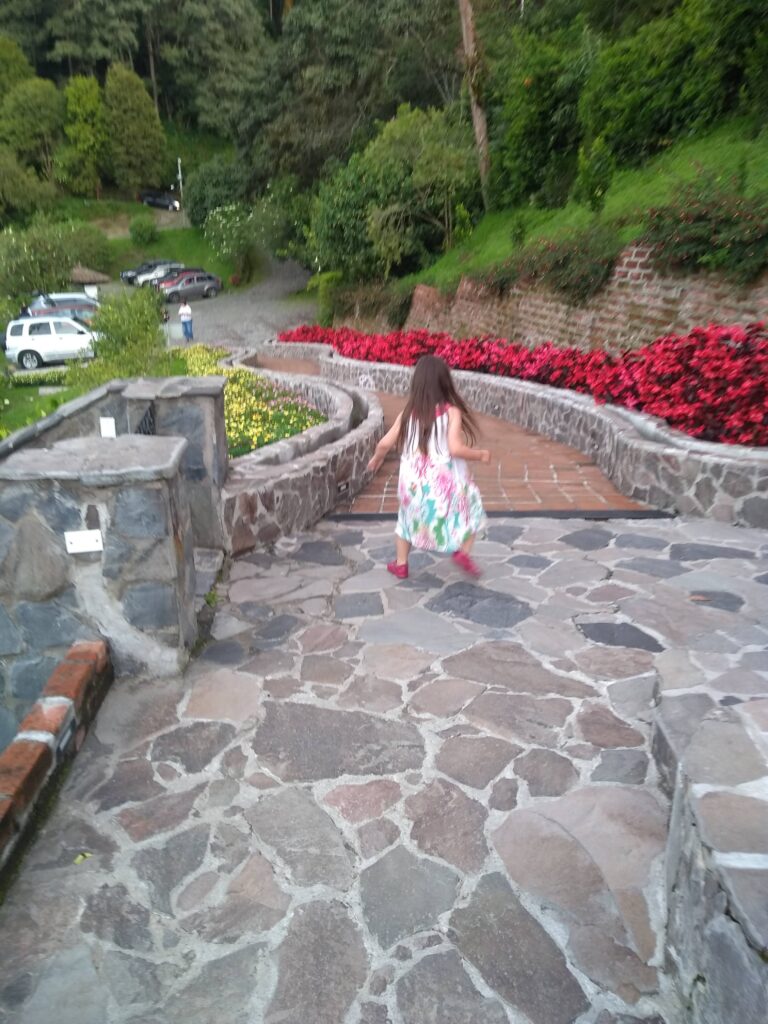Authenticity was not important in my religious upbringing. Fitting in was. We were accepted only if we agreed with and lived by the values we were taught.
These included
- Accepting patriarchy
- Being homophobic
- Believing that only Christians, and even only certain denominations of Christians, go to heaven
- Believing everyone else is headed for eternal torture in hell
- Believing I am destined for hell if I do not believe all of the above
If a child grows up in a family and community where they are threatened with rejection by their family and that they will end up in hell if they disagree, they are not likely to develop authentically. Children need to attach to their care-givers. If there is a conflict between being able to express who they really are and what they really think, and risking rejection by their care-givers, they are likely to suppress their true self and comply in order to remain part of their family and community.
Such children are not able to express their natural curiosity. They suppress their questions, thinking that they are “sinful”, or “wicked”.
These children develop attachment disorders, instead of a secure attachment, and this is likely to affect their relationships in adulthood. I will look at this in more detail in different post, but in summary, instead of being able to show up in adult relationships secure in who they are, they may be anxious, or avoidant or vacillating or even a mixture of these. Fundamentally, this stems from the human need to belong, and the deep-rooted belief from childhood that in order to belong they must conform.
If the child is anything other than their biological gender and heterosexual, they can be faced with the choice of supressing their authentic identity, or being rejected and told they are destined for hell. Those who are LGBTQ+ in such religious communities have higher rates of mental illness and eating disorders, as well as physical illness related to stress and trauma, such as auto-immune conditions. Several studies have now shown they have a significantly increased risk of suicide compared to their peers. (See for example https://www.thetrevorproject.org/research-briefs/religiosity-and-suicidality-among-lgbtq-youth/https://www.thetrevorproject.org/research-briefs/religiosity-and-suicidality-among-lgbtq-youth/) They can develop addictions, and family break-downs can occur when the person comes out.
Children who have to fit in, in order to belong to their family, especially when this is imposed by a fear of God’s disapproval or rejection, often become anxious people, who do not know who they really are. The more forceful the control and coercion they experience, especially if they are also quite isolated in their religious community, without much contact with people outside, the more trauma is likely to be caused. The need for attachment trumps the need for authenticity, when you are a child. The person ends up emotionally stunted, anxious to fit in or to please, unaware of their true beliefs, identity, needs and personhood.
This is spiritually, emotionally and psychologically very harmful.
Telling a child that if they are gay, or live a gay lifestyle, they will go to hell, is extremely damaging.
Indoctrinating a child with religious beliefs and restricting their access to or ability to consider other people’s views destroys the child’s opportunity to form an authentic personal belief system. It is spiritual abuse.
The use of the concept of hell to control and dominate a child can be very traumatic and cause life-long debilitating anxiety. This anxiety prevents them from being able to explore their true beliefs. It is harmful.
Some parents control their children by their reputation. Children are taught that they must go to church, behave with the accepted moral standards, and conform or else they will destroy the parent’s reputation as a good Christian, and bring shame on the family. The child’s worthiness is sacrificed. This too is abuse.
Richard Rohr says, “The only function of religion is to reveal to you your true self.”
I think that a religious upbringing that does not allow a person to develop their own authentic moral and spiritual beliefs, to develop as the person that they truly are, is a travesty. It is destroying, suppressing and rejecting the sacred children in their care.
I believe true, healthy religion or spirituality allows the freedom for each person to explore, discover and become the person they were born to be. It celebrates diversity, includes all, and encourages people to flourish and thrive as the unique person they are.
When we live with authenticity, we live wholeheartedly, freely and at peace.
If you want to put it in these terms, it allows each person to live as the person God created them to be.



I agree with much of what you have said and indeed recognise it from my own experience. Although the last bullet point about “going to hell if you don’t believe all of the above” – I don’t think I recognise, but can’t argue with your own experience.
It is pretty hard to bring up kids, and for a child to attempt self discovery when they are all at sea, is a challenge, if there is no star to follow or moral compass to guide. We want them to sail on their own but not cast them adrift.
I believe that church can provide a nurturing environment, and that there is evidence to back this up. I also believe there is an over emphasis on doctrine – which can be interpreted in different ways- at the expense of following the teaching and example of Christ.
As Christian parents we so often get it wrong: whether we like it or not, we are also products of nature and nurture. So many parents are then destroyed by guilt- “if only we had said yes or no.” But we would die for our kids.
We are all on a journey of self discovery- whether we recognise this, and accept it or not. We never arrive.
Yes, I agree. Children need guidelines to be secure. There are so many confused young people who are at sea with today’s lack of guidelines or moral compass. But, having given guidelines we will forever love and accept our children. I know Christian parents who navigate very well these difficult waters of gender identity without the condemnation that’s described here.
Pingback: What is the Spiritual Abuse of Children? - returning home to yourself